Annika Stein
Improving robustness of jet tagging algorithms with adversarial training: exploring the loss surface
Mar 25, 2023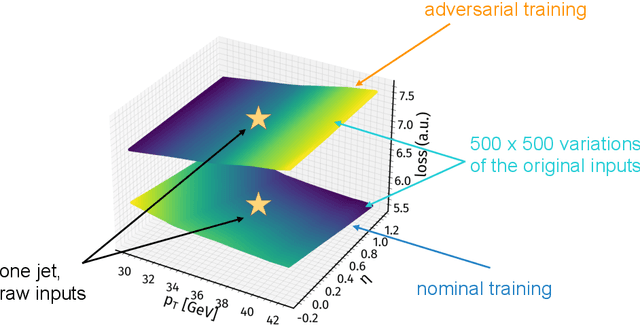
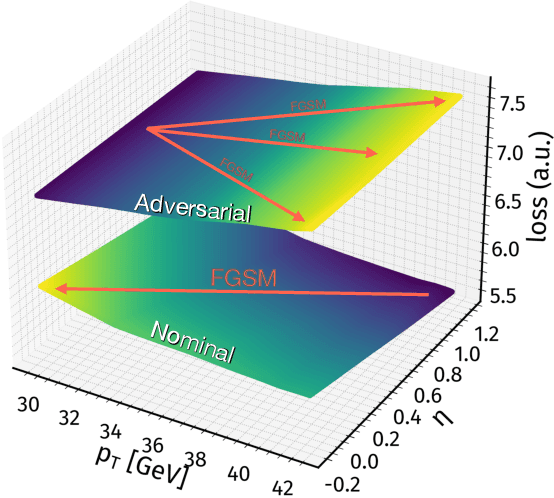
Abstract:In the field of high-energy physics, deep learning algorithms continue to gain in relevance and provide performance improvements over traditional methods, for example when identifying rare signals or finding complex patterns. From an analyst's perspective, obtaining highest possible performance is desirable, but recently, some attention has been shifted towards studying robustness of models to investigate how well these perform under slight distortions of input features. Especially for tasks that involve many (low-level) inputs, the application of deep neural networks brings new challenges. In the context of jet flavor tagging, adversarial attacks are used to probe a typical classifier's vulnerability and can be understood as a model for systematic uncertainties. A corresponding defense strategy, adversarial training, improves robustness, while maintaining high performance. Investigating the loss surface corresponding to the inputs and models in question reveals geometric interpretations of robustness, taking correlations into account.
Improving robustness of jet tagging algorithms with adversarial training
Mar 25, 2022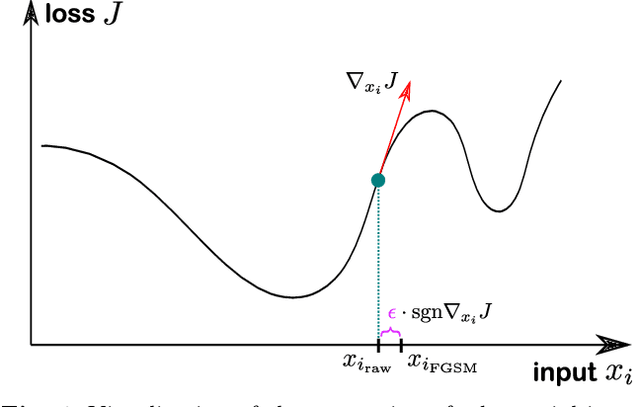
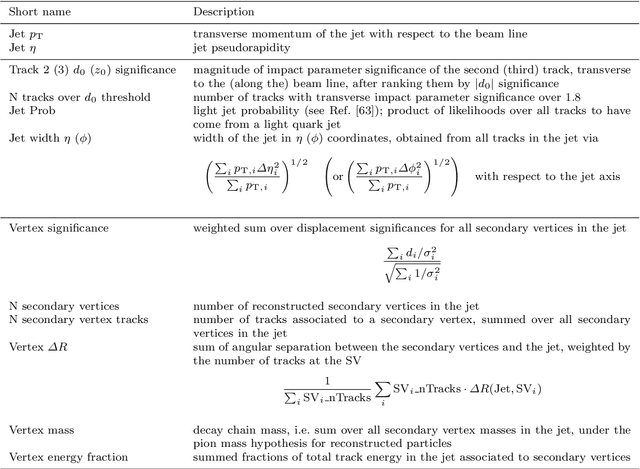
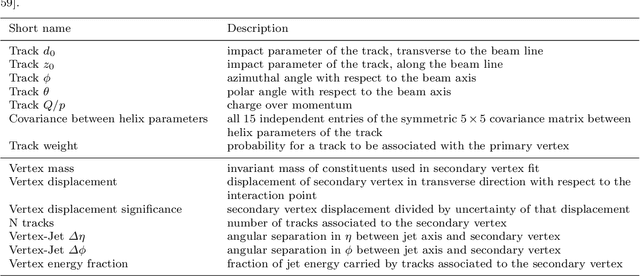
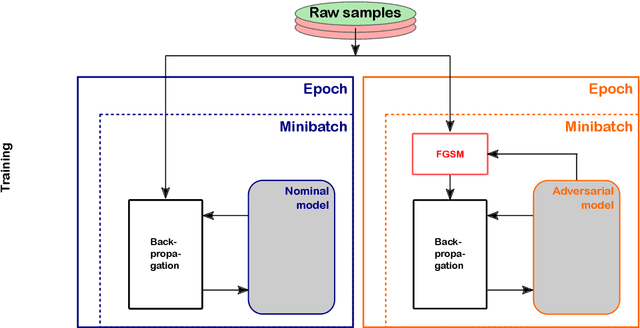
Abstract:Deep learning is a standard tool in the field of high-energy physics, facilitating considerable sensitivity enhancements for numerous analysis strategies. In particular, in identification of physics objects, such as jet flavor tagging, complex neural network architectures play a major role. However, these methods are reliant on accurate simulations. Mismodeling can lead to non-negligible differences in performance in data that need to be measured and calibrated against. We investigate the classifier response to input data with injected mismodelings and probe the vulnerability of flavor tagging algorithms via application of adversarial attacks. Subsequently, we present an adversarial training strategy that mitigates the impact of such simulated attacks and improves the classifier robustness. We examine the relationship between performance and vulnerability and show that this method constitutes a promising approach to reduce the vulnerability to poor modeling.
 Add to Chrome
Add to Chrome Add to Firefox
Add to Firefox Add to Edge
Add to Edge